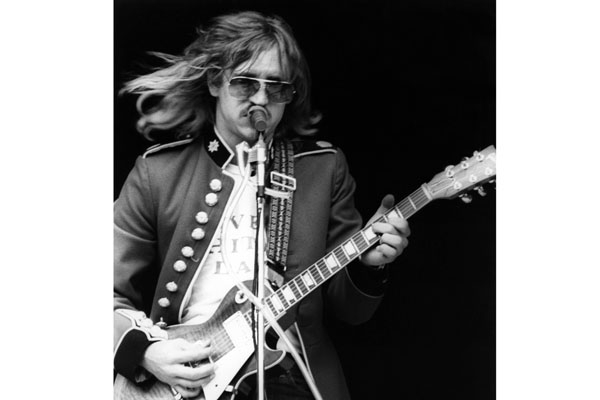Elderly pop tunes, as we all know, have a tendency to remind you of things you may not wish to remember. Wings’ ‘Band on the Run’, for example, gives me the taste of cold beef, chips and beans in the Nag’s Head in Oxford circa 1978. It was on the jukebox there, I was an undergraduate and just about managing not to starve to death.
On Radio 2 the other day, Ken Bruce played ‘Life’s Been Good’ by Joe Walsh, and I could suddenly feel the bitter cold of my tiny student room with its two-bar electric heater and the mould slowly creeping along the walls towards my bed, where it would surely engulf me. But hang on, didn’t I buy the single? I had a look and there it was. No song you bought on 7-inch vinyl ever entirely leaves you, even if you no longer have a working record player to play it on, and for the rest of the week I had the tune pulsating through my mind: a true earworm.
As so often in the past, I found myself drawn towards amazon.co.uk and the song’s parent album But Seriously Folks…Walsh played with the Eagles in those days and, indeed, still does, but in between he also released a string of easy-going solo albums. This was one and it’s perfectly pleasant, in an expensively recorded, beery country-rock kind of way. But ‘Life’s Been Good’, which on the album is eight and a half minutes long, is quite something. A satirical portrait of a hopelessly indulged 1970s rock star, it’s as droll and pertinent today as it ever was. (‘I go to parties, sometimes until four. It’s hard to leave when you can’t find the door.’) It’s also full of hooks, and hearing it again after so long, I realised that it has that signature of the truly great pop single, in that it sounds like nothing else and nothing else sounds like it. I have had it in my head from morning till night for about a fortnight now, and it’s beginning to get painful.
Why isn’t ‘Life’s Been Good’ regarded as a great rock classic, as it should be? Well, it is possible that I am the only person who truly loves it, but I find that hard to believe. Any student of the searing guitar solo would relish the two that Walsh plays here. No, I think the problem is its humorous intent. Wit has an awkward place in pop music, and particularly in the US, where the consistently low sales of Randy Newman have put off anyone ever making a joke again. We’re a little more broadminded over here — we recognise the palpable genius of Pulp’s ‘Common People’ and of Ian Dury’s first couple of albums — but we could do better.
In a more just society, Neil Hannon of the Divine Comedy would be universally fêted as the greatest songwriting talent of his generation, but his unstoppable wit and intelligence have doomed him to cult status and no more. So much pop music needs desperately to be taken seriously, lest its underlying absurdity be revealed for all to see. Once you started laughing at, for instance, Bono and his good works, or The Edge and his stupid hats, or the fact that men over 50 are still calling themselves ‘Bono’ and ‘The Edge’ when everyone knows their names are Paul and Dave, where would it end?
And as if to confirm these sad thoughts came the news last week that The Word magazine is to close. Quite a number of men over 50 are grievously upset about this, Danny Baker and Simon Mayo among them, but there don’t appear to have been enough of them to keep the magazine going. It was possibly my second-favourite magazine in the world, even though the bastards never gave me any work. But its defining quality was wit, and it’s striking that the infinitely more prosaic and worshipful Mojo, which is aimed at the same middle-aged readership, continues to flourish. Like Neil Hannon, XTC and many of my favourite bands, The Word was considered ‘too clever by half’ by people who aren’t. Its closure represents another small erosion of our national culture, whereby something good disappears to be replaced by, at best, nothing and, at worst, something unspeakable. ‘Life’s been good to me so far,’ sang Joe Walsh in 1979. It hadn’t dawned on me until now how crucial those last two words were.






Comments